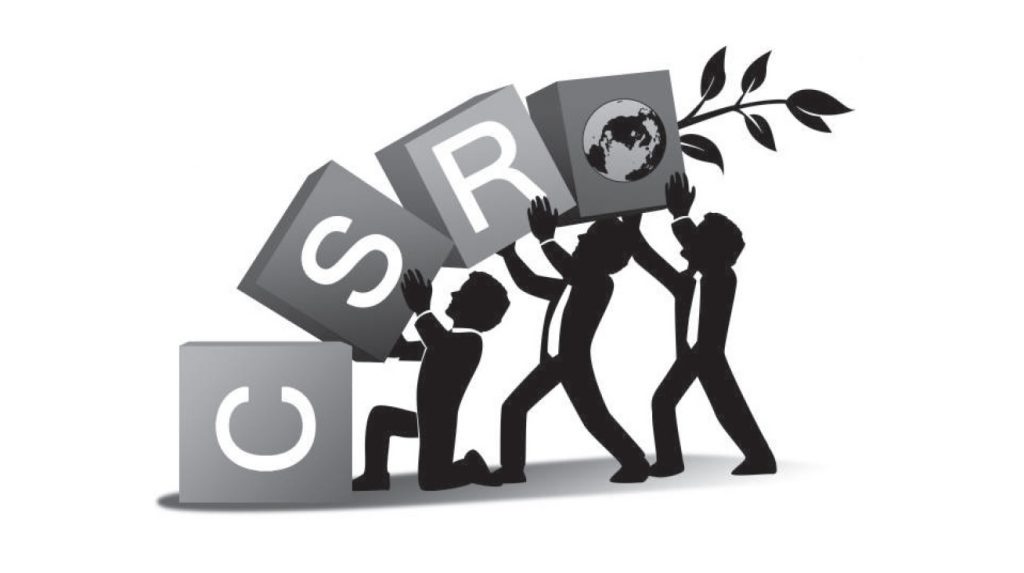
Efforts to regulate corporate social responsibility (CSR) initiated by the Regional Representative Council (DPD) and the House of Representatives (DPR) are continuing. Currently, DPR members are seeking input for the drafting of the CSR Law. Through this regulation, the parliament wants to oblige companies to allocate part of their profits for CSR programs. Unfortunately, this approach is to a tax and has the potential to reduce CSR to the extent of funding sources.
When examined further, there are several problems that become obstacles to question the urgency of drafting the CSR Law. First, the drafting of this law was not built with a complete understanding of what corporate social responsibility is. The various opinions and perspectives that have emerged have tended to simplify the essence of CSR to the extent of allocating and collecting funds in the form of programs and activities. ISO 26000 SR, an international guideline that has been formally adopted as the Indonesian National Standard (SNI) clearly describes what and how social responsibility actually is.
Referring to this formal guideline, social responsibility is not just a contribution or philanthropy, but refers to three main ideas, namely: addressing the various impacts of company activities on society and the environment, contributing to maintaining a healthy ecosystem, and considering the expectations of stakeholders. With a law that is heavily oriented towards efforts to collect funds, the concept is likely to further distance companies from understanding and implementing multidimensional CSR.
In reality, the practice of social responsibility in Indonesia is still lagging behind. This can be seen from the latest research results from the Research Center for Governance, Institutions, and Organizations of the National University of Singapore (NUS) which examined the quality of social responsibility for 100 companies in four countries, namely Indonesia, Malaysia, Singapore and Thailand. The quality assessment criteria are based on a number of indicators, including corporate governance, economic, environmental and social. The research results show that Indonesia is in third place with a value of 48.4 out of a total of 100, behind Singapore (48.8) and Thailand (56.8).
Part of the business process
Second, the simplification of CSR into mere social contributions limits the scope of implementation. Treating CSR as organizing company funds for the community ultimately makes limited social responsibility the obligation of certain units or departments in the company. Even though the dimensions of CSR are so broad and should be part of the overall business process of the company. The ideal CSR implementation, according to Wayne Visser (2011), must be strategic, that is integrated and reflected along the company’s value chain. It is closely related to seven core subjects, namely corporate governance, human rights, labor practices, environmental management, good business practices, consumer protection, and community development.
Third, regulations made only to target profitable companies can limit the implementation of CSR by all entities. That is, if CSR is only intended for companies that have made a profit, then what about companies that have just started running or are already operating but are not yet profitable? Does this mean they don’t have to run CSR? Being a socially responsible company is actually not only valued by the amount of money that is being poured out of the profits.
This means that since the beginning of the company’s operations, CSR should be implemented, as referred to Kellie McElhaney (2007) with the obligation before profit. This means that even before making a profit, the company must carry out its social responsibility. For example, implementing good corporate governance, dealing with environmental impacts, respecting the rights of affected communities and granting employee rights accordingly. Referring to this dimension, in fact there have been many regulatory instruments that have been regulated and implemented by the business world, for example, laws on investment, environmental management and labor. This means that the spirit of implementing social responsibility, one of which should be directed at how companies can always comply with and implement the law, not pay social levies.
The main impact when this law is passed is that being socially responsible for the company is only understood and measured by a number of funds or ceremonial activities. CSR is prone to be misused to divert public attention from socially and environmentally irresponsible practices. On the other hand, there are companies that have implemented CSR that are more precise but have gone unnoticed and are only valued in terms of money.
If these regulatory efforts are continued, it is tantamount to perpetuating the meaning and practice of CSR. This of course can lead to a setback for the development of CSR in Indonesia.
On the other hand, the urgency to return to the idea of a comprehensive CSR has actually been going on globally. The ASEAN Community Blueprint signed by all ASEAN heads of state has formulated the main aspects of social responsibility. The ASEAN Community Blueprint emphasizes its members to realize CSR, including by providing support for improving corporate governance, stakeholder engagement, public and private partnerships, and promoting environmentally friendly production and consumption, as well as support for the development of MSMEs. and social entrepreneurship.
Therefore, this effort to regulate CSR needs to be reviewed. On the other hand, the more important agenda for Indonesia today is to mainstream CSR concepts and ideas that are more holistic and strategic.
Mardian Marsono was a Senior Consultant at Kiroyan Partners.
Source: Kontan, September 13, 2016, page 23.



